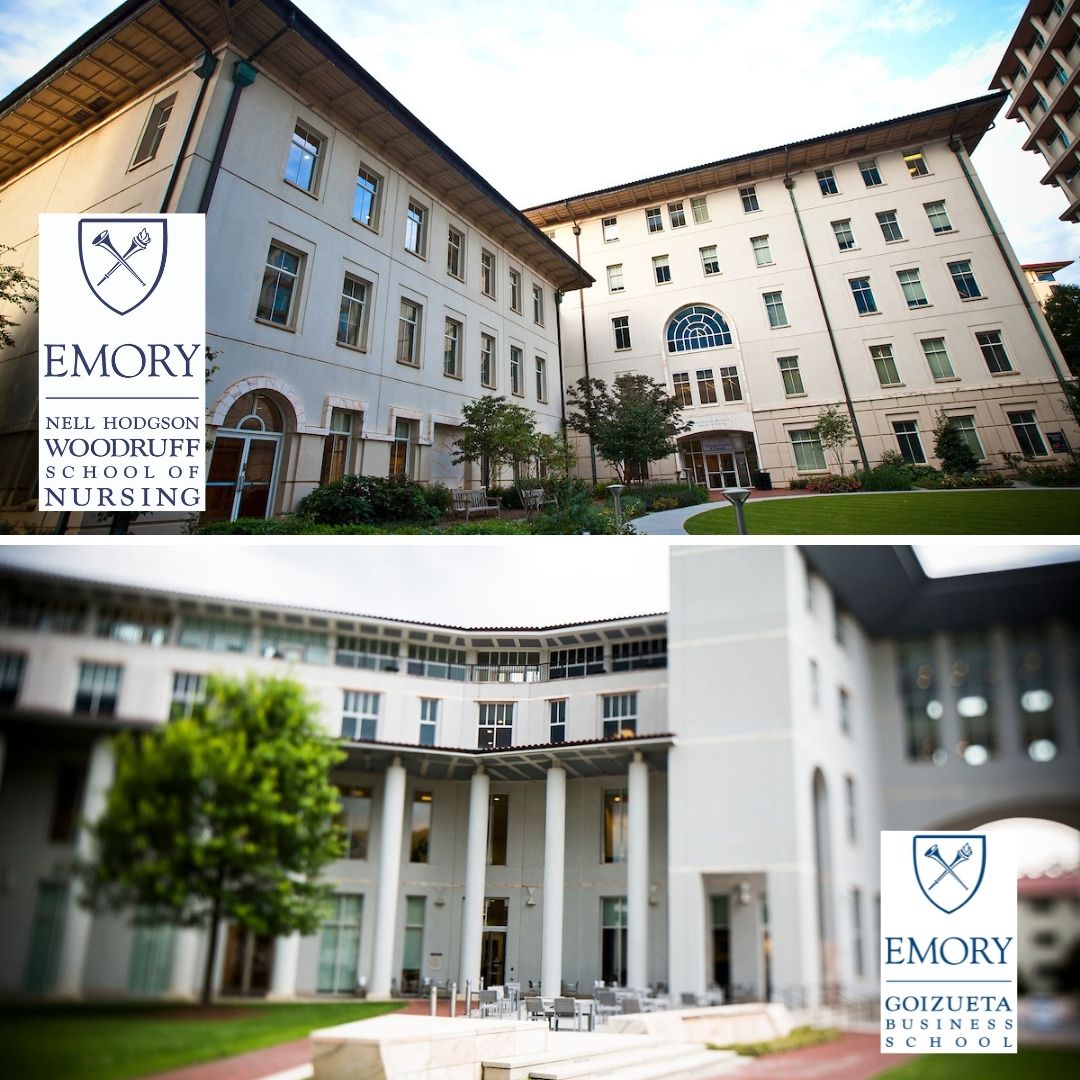The educational and professional landscape was significantly altered when the Covid-19 pandemic hit in 2020. Studies have shown an increase in mental health concerns in college students. A summer 2020 survey of over 45,000 students by the Center for Studies in Higher Education found that nearly 40% screened positive for generalized anxiety disorder and over 30% for major depression symptoms. The prevalence of depression symptoms is two times higher than in 2019, and anxiety has increased 1.5 times. According to a CDC report, young adults also experience two and a half times the rate of suicidality compared to other age groups. Students in professional schools like nursing and business may also bring substantial personal trauma and stress, which will likely have a significant psychological, social, and occupational impact on the incoming workforce.
With stats this alarming, Emory education leaders at the Goizueta Business School (GBS) and Nell Hodgson Woodruff School of Nursing (NHWSN) knew they had to help.
Enter Dr. Andrea Dittmann, Assistant Professor of Organization and Management (GBS), Dorothy Jordan, DNP, APRN, PMHNP-BC, PMHCNS-BC, FAAAN Associate Clinical Professor (NHWSN), Dr. Melissa Owen, RN, CNE, FHFSA Associate Clinical Professor (NHWSN), and Katherine Pfeiffer, MS, APRN, PMHCNS-BC, PMHNP-BC Clinical Instructor (NHWSN).
NHWSN and GBS are the only professional schools at Emory University that educate undergraduate students. Emory University now offers a synergy grant that connects Woodruff Health Sciences and other schools, allowing them to create interprofessional opportunities. This is the first collaboration between two schools, and from it, the Personal Leadership Collective (PLC) was developed.
“Given the stress and disruption of the ongoing pandemic, we know that preparing our pre-professional students with the knowledge, skills, and attitudes to thrive in today’s occupational landscape should be a key priority for all of us in education,” said Jordan. “We must support their growth in preparation for agile leadership in their respective fields.”
“We have benefited tremendously from our partnership,” said Pfeiffer. “We have gained insightful perspective from the Goizueta students and faculty, both in terms of wellbeing needs and priority outcomes. Sharing ideas across disciplines significantly strengthens our partnership and opportunities for innovation. Students also benefit from shared experiences. Collaboration has widened the lens of perspective for us all.”
The experts aim to achieve these milestones with the pilot project:
- Increase resiliency and self-compassion and decrease perceived stress in business and nursing students
- Foster interprofessional collaboration between business and nursing students
- Identify differential impacts of these interventions on students experiencing added psychosocial stressors such as first-generation college students, students with food insecurity, or who are experiencing financial strain.
They also hope to provide insight into proactive, cross-disciplinary ways universities can bolster the resilience of their pre-professional students while ensuring that they are equipped with the skills they need to thrive in today’s ever-changing work landscape.
Students are already feeling the effects of the program and its benefits.
“I think the project has helped in a myriad of ways,” said BSN student at NHWSN, Audric Donald. “We learned about techniques that have been proven to work to increase our critical thinking and break the norms of our processes to reflect and force quality thoughts and use those qualities to become better leaders.”
Sydney Turner, another BSN student at NHWSN, signed up for the collective to meet new people from different programs and improve her skills. She suggests her peers consider the collective. “You will learn a lot more than you think and have fun,” she said. “Leadership has changed over the years to accommodate the social dynamics of our time, and the program helps you think in the right direction with fun exercises and speeches.”
With the project underway, Dittman and Jordan hope that their collective will grow and will continue to help those who participate.
“It’s been a fantastic experience working with students and faculty from the School of Nursing,” said Dittmann. “It’s great to break out of silos and collaborate across disciplines. Not only do we believe this is beneficial for the students participating in the PLC, but it is also helpful for me as a researcher and scholar.”
“We anticipate that the PLC content will be integrated into our curriculum so that all students can build critical knowledge and skills for resilience in their academic environment and their workplace,” said Jordan. “Our goal is for our students to thrive here at Emory and to be agile leaders in their workplace. We hope that the PLC will grow over time, led by student Champions to facilitate future programming and development aspects. We envision a sustained PLC community, joined by a shared commitment to pandemic-driven personal and professional growth.”
If you are interested in joining the program, contact Kate Pfeiffer at kpfeiff@emory.edu.

